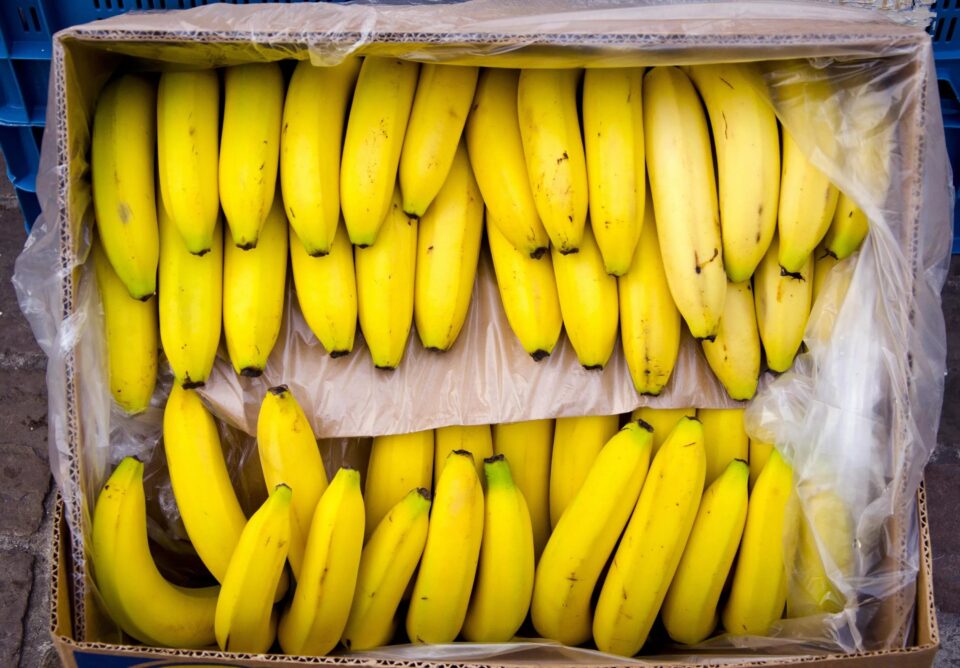According to EastFruit analysts, Russia is striving to keep its position as the world’s most unreliable trading partner. it is taking revenge in its typical style – harming the industry of another country at the cost of its own consumers. The target of this revenge may be the banana producers of Ecuador.
The scale of the problem
Ecuador is the world’s largest exporter of bananas, followed with a large gap by the Philippines, Costa Rica, and Colombia. Likewise, for Ecuador, Russia is the main market for its bananas, also much ahead of the second largest buyer, which is the USA.
However, by the volume of banana imports, Russia is only the third largest global importer, trailing behind the USA and China. But what is more interesting is that russia, unlike most other large importers, has no diversification in its sources of banana imports. Almost 96% of all the bananas that russia imports come from one country – Ecuador. Meanwhile, Ecuador exports bananas to a huge number of countries around the world.
What is the core of the banana issue?
The Rosselkhoznadzor, the Russian agricultural watchdog, demanded that the Ministry of Agriculture of Ecuador stop certifying bananas from five Ecuadorian companies from February 5, 2024, allegedly because of the detection of a quarantine pest – the polyphagous humpback fly. But we know that the rosselkhoznadzor is a puppet organization of the putin regime, which only finds quarantine pests when the country supplying the products has offended the russian dictator.
The companies that fell under Putin’s wrath are the ones that actively export bananas to the russian market: Agzulasa, Don Carlos Fruit, Agroaereo Fruit Export, Asociacion de Produccion Agropecuaria de el oro Asoproagroro, Comercializadora de Banano.
What is the real reason for the banana war that russia is waging against its consumers?
The real reason was the decision of Ecuador to transfer to the USA some military equipment of russian origin. Ecuador considers this equipment to be morally and physically outdated and useless, and can now exchange it for modern military equipment from the USA. This is critically important for the country, where there is a tense internal situation and widespread unrest. Moreover, it is very likely that the equipment transferred to the USA will be used to reinforce the Ukrainian army, which has been resisting the treacherous invasion of the superior forces of russian aggressors for almost two years.
Who will really suffer from the restriction of banana imports to Russia?
Bananas are the least expensive fruit in russian stores right now. For example, in Moscow supermarkets today, you can buy a kilogram of bananas for an average of 120-130 rubles per kg, which is about USD $1.3-1.4 per kg. In contrast, a kilogram of apples will cost you an average of 20 rubles/kg or 22 US cents per kg more.
Russians eat about one and a half million tons of bananas every year – or more than 10 kg per person per year. And almost all these bananas come from Ecuador. Switching to buy bananas from other countries will be hard, expensive and will cause a drastic rise in the price of bananas in the short and medium term. By the most conservative estimates, the price of bananas in russian retail will go up by a third, or by 25 rubles/kg ($0.27 US dollars).
This means that the already poor russian consumers will have to pay more than $400 million US dollars or 36.5 billion rubles extra just for this caprice of the russian dictator.
Ecuador, of course, will also lose some money. But their losses will be much smaller, because they export bananas to almost every country in the world. So, it will be fairly easy for them to find a substitute for russia, especially since the countries that start selling bananas to russia will increase their prices and sell less to other markets. And Ecuador will fill the gap in those markets with their bananas.
This situation should serve as another warning for all the countries that rely on the russian market for a large part of their products – this is not a trustworthy trading partner to depend on!
The use of the site materials is free if there is a direct and open for search engines hyperlink to a specific publication of the East-Fruit.com website.




